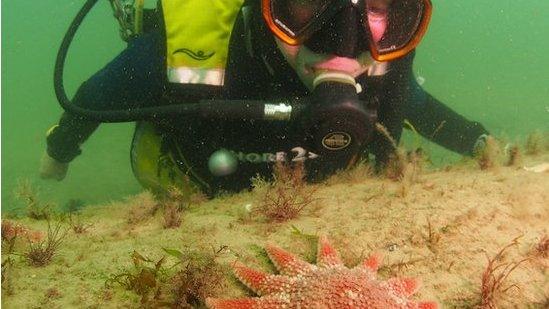'Rare' samples hold North Sea-bed's Doggerland secrets
- Published
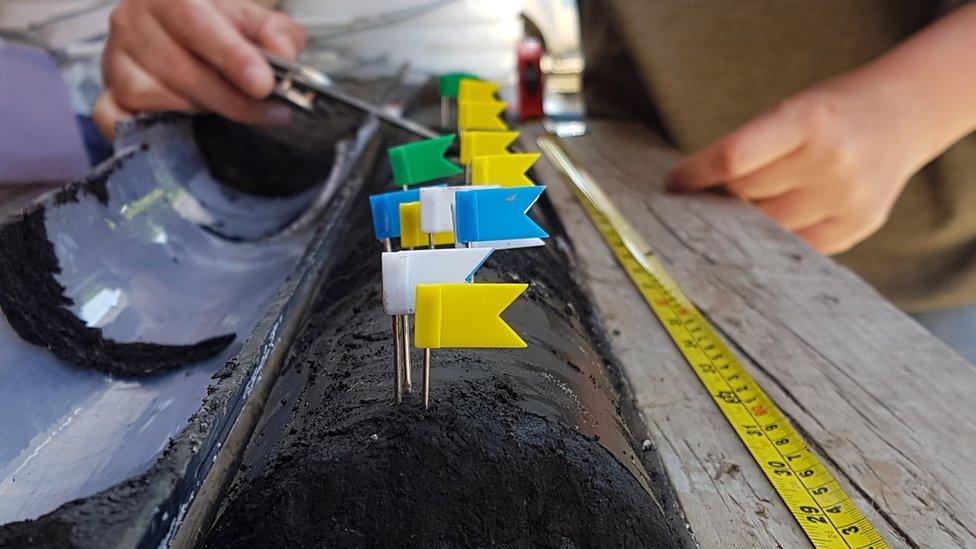
The samples are the most complete set ever extracted from the area, according to Dr Claire Mellett
Rare samples from the bed of the North Sea provide an "almost unbroken record" of a prehistoric landscape, archaeologists have said.
Doggerland was once a rich grassland for mammoth, aurochs and red deer but flooded more than 8,000 years ago to form the North Sea and English Channel.
Wessex Archaeology said the "unique" sequence of sediments could reveal how the area changed as the climate warmed.
The samples were taken during drilling at the site of Norfolk Boreas windfarm.
It is being developed by Swedish energy group Vattenfall, external, 44 miles (72 km) off the Norfolk coast.
Doggerland is named after Dogger Bank, a large sandbank off the east coast of England.
Wessex Archaeology said it hoped to provide a full analysis in spring 2019, but it expected the samples to show how the landscape looked and how quickly hunter-gatherers had to adapt to the changing coastline as the British Isles became cut off from mainland Europe.
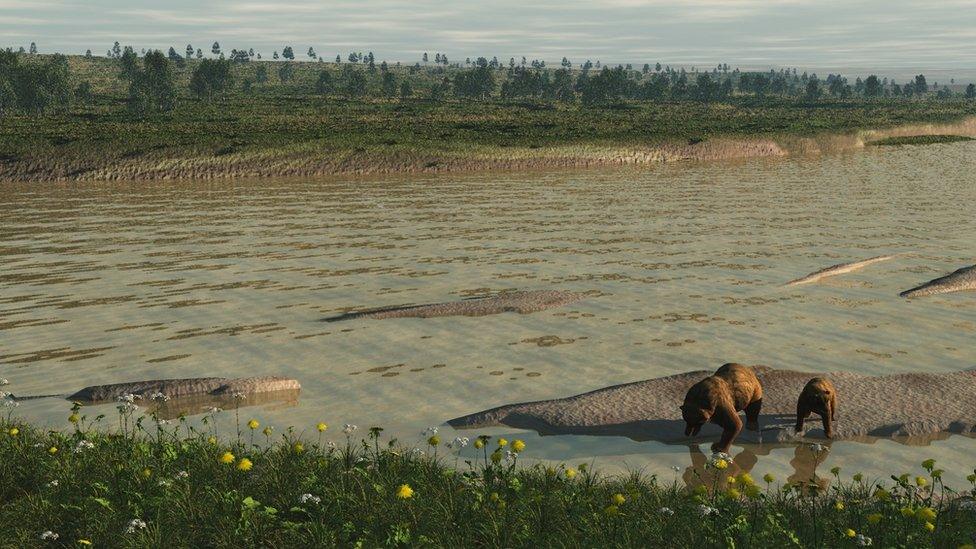
After the last ice age, Doggerland offered a temperate climate with big game animals like mammoth
Geoachaeologist Claire Mellett said the "exceptionally rare" samples "offer an environmental record over a period of nearly 3,500 years" and were the most extensive and complete set ever extracted from the southern North Sea, covering an area of 33 sq miles (85 sq km).
"Previously-studied peats are isolated deposits and only capture a short time period," she added.
"Those recorded here provide a near-continuous record of prehistoric change before and during the flooding.
"We will be able to reveal how the landscape may have looked, how it changed as the climate warmed and - crucially - how this changed the relationship between prehistoric communities and their environment."
Christopher Pater, head of marine planning at Historic England, said the project should "throw new light on the extraordinary archaeological history of the North Sea".
"This work has huge potential to show us the changes in climate that have occurred since prehistoric times, and tell us more about the ancient landscape on which our ancestors once roamed."
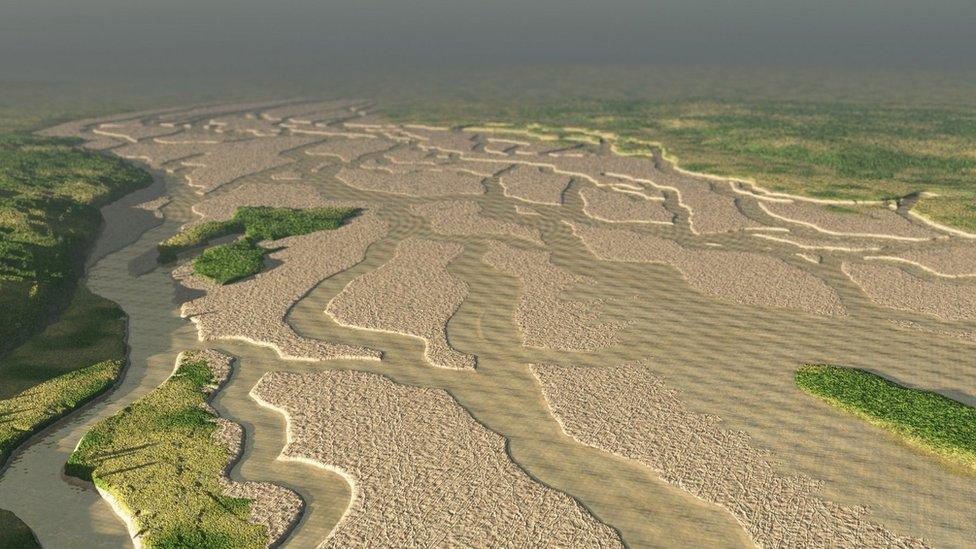
An artist's impression of the Doggerland flood plain
- Published12 April 2018

- Published7 August 2017
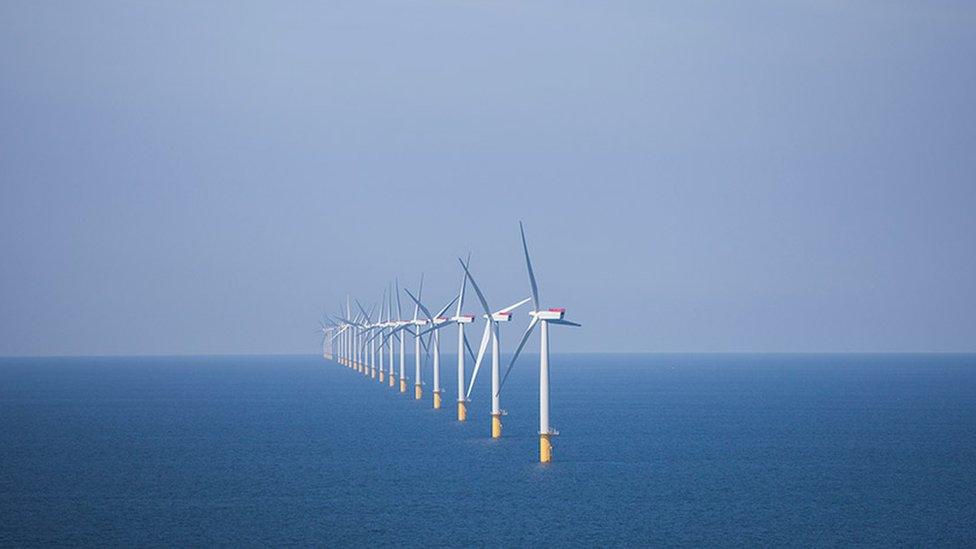
- Published26 January 2015
